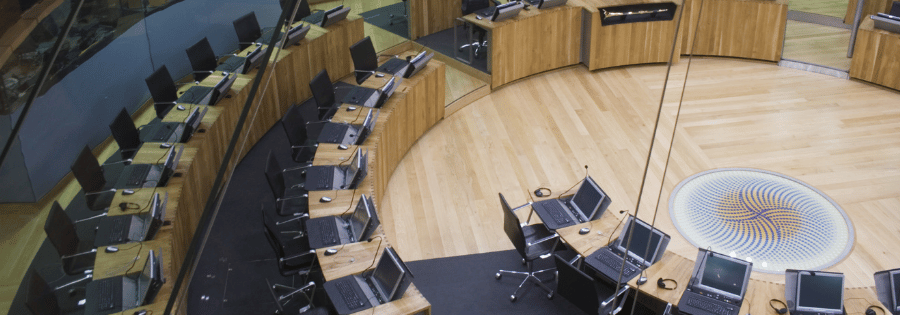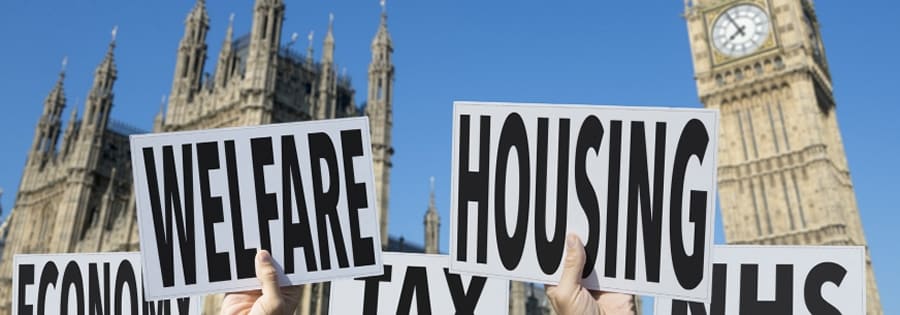Political parties compete to be tough on migrants
This newsletter comes at the end of a conference season for the UK’s political parties, who spent much of it claiming to be tougher on migrants than their competitors. Here are the key points and a range of views in response.
Labour to end the ‘golden ticket’ for asylum seekers and refugees
On 1 October, Keir Starmer said he would end the “golden ticket” for refugees being entitled to apply for permanent residency after five years or gaining an automatic right to family reunification.
The proposals build on May’s white paper, summarised in a new parliamentary briefing.
Family reunion suspended
Suspension of all refugee family reunion routes was announced prior to the conferences. Praxis explained the punitive effects. Ramfel’s Nick Beales spoke to Byline Times, calling the decision “a shameful move with devastating consequences”. Free Movement updated its guide to the suspended family reunion scheme (for those who beat the deadline).
But now the government looks to go further: refugees will lose the ‘automatic’ right to family reunion, but what this means exactly is not yet clear.
The Refugee Council’s Jon Featonby said: “The previous government tried and failed to put people off taking risky journeys by reducing the rights of refugees once they were in the UK, restricting both family reunion and settlement. This approach didn’t work then, and there is no evidence to suggest it will work now. Restricting family reunion only pushes more desperate people into the arms of smugglers in an effort to reunite with loved ones…family reunion overwhelmingly supported women and children — who made up nine out of 10 visas granted through this route in the last year.”
A longer wait and more conditions on indefinite leave to remain
Labour’s white paper included an increase in the standard qualifying period for permanent residence (indefinite leave to remain) from five to 10 years. New home secretary Shabana Mahmood said in September that relevant factors will include being in work, making National Insurance payments, not claiming benefits, good English, a clean criminal record, and “giving back” in the community. Details will be covered in a promised consultation.
The proposed ‘contribution-based settlement model’ would therefore require migrants to undertake voluntary work. Charities would be forced to monitor and report their hours. Many migrants are in jobs where they work long hours, often with low pay. For example, nursing leaders said that the NHS and social care would cease to function, with hundreds of medics condemning the policy as “divisive and xenophobic”.
The Conversation claimed that the plan for migrants to “earn” permanent residency turns “belonging” into an endless exam:
“Labour risks a migration politics that divides society into the fully entitled and the permanently probationary. In this hierarchical system of belonging, migrants are kept on extended probation and judged by standards never applied to British nationals.”
Minnie Rahman, of Praxis, said people will “be expected to go on living from one visa to the next, paying thousands to the Home Office each time, with no access to a safety net, forever unable to access the basic security and certainty that ILR brings, and denied citizenship”.
Lack of detail in the proposals has caused huge concern to those potentially affected, in particular because the government gives mixed messages about whether or not any changes will apply to those already here.
Further cuts in migrants’ access to benefits?
The i Paper reported in July that a further “deterrent” being considered by government is to widen the restrictions on migrants’ access to benefits. Of course, a large proportion of recent migrants have no access to benefits anyway. But the plans evidently involve looking at benefits access for those with indefinite leave, who are currently eligible for welfare support and housing.
The i Paper has followed up by asking experts how feasible this is. “Not very,” seems to be the answer, since European migrants have their access guaranteed by the Brexit settlement, leaving only non-EEA migrants who have ILR who might be affected. Households with a non-EEA claimant account for eight per cent of universal credit claims. Since this would only affect people who have already been in the UK for many years, it is hardly likely to have a deterrent effect on new migrants, who will be ineligible for benefits (in almost all cases) anyway.
Human rights convention to be reviewed
Both the prime minister and the new home secretary have committed to reviewing human rights law, particularly as it applies to unsuccessful asylum seekers “blocking their deportation on the grounds they could be sent to worse prisons or healthcare systems”.
In the London Review of Books, Conor Gearty examines the “threat” to the Human Rights Act. UnHerd argues that the obstacles are formidable, and that, even if changes are possible, they “wouldn’t help the country deport more illegal migrants.” The Observer points out that the Strasbourg court which interprets the convention has ruled against the UK only three times in the past 45 years in cases relating to immigration rules.
Earlier government policy changes take effect
New focus on illegal working
Many migrants with a legal right to be in the UK are barred from working and turn to exploitative delivery apps to earn cash. Now the government is moving to clamp down on this, according to openDemocracy, shifting focus from irregular crossings to illegal work. This reflects Labour’s recognition that, despite media narratives, most migrants with some irregularity in their papers did not arrive via the Channel.
A Portuguese delivery driver, who has been in the UK for years but had not applied under the EU Settlement Scheme, has been detained for “illegally working”, the Guardian reported.
Visa restrictions hit exploited care workers
The UK care sector has an acute shortage of workers: there was a 6.8 per cent vacancy rate in March 2025. Yet tens of thousands of migrant care workers are now unemployed due to a recent government crackdown. The Home Office’s strict visa requirements and out-of-touch expectations are the reason, says openDemocracy. A new report on the state of adult social care shows its dependence on migrant staff.
Politics Home reported that London will be worst hit by the new visa restrictions.
The UK-Europe transfer scheme begins
In August, the government introduced a new appendix to the immigration rules, setting out how people will be sent back to France as a result of the new UK-France treaty on “preventing dangerous journeys”. Free Movement considers the implications.
Asylum seekers locked in detention centres as part of this ‘one in, one out’ deal have said they had not heard of the scheme before arriving in the UK and were terrified of being returned to their home countries, reports the Guardian. A follow-up article shows the arbitrariness of the scheme. The first victim of the new policy, an Indian national, was returned to France on September 18. Several others have followed.
Shortly before this, a returnee successfully avoided being sent to France for administrative reasons. Home secretary Shabana Mahmood railed at “last-minute vexatious claims” and “migrants suddenly deciding that they are a modern slave on the eve of their removal”. On the Free Movement blog, solicitor Sonia Lenegan wrote: “I suspect that she [Mahmood] knows perfectly well that the ‘intolerable…last-minute attempts to frustrate a removal’ are a direct result of the system as designed by the Home Office, which does its absolute best to prevent people being able to access lawyers and make effective claims at all.” The BBC commented that “the Home Office regularly snatches defeat from the jaws of victory thanks to epic levels of dysfunction”.
Other reactions to Starmer’s plans
“Which Starmer are we getting today?” asked the New Statesman, the day after the prime minister condemned Reform’s deportation policy as “racist”. Freedom from Torture said: “These measures are taken straight from the populist playbook the government itself has condemned.” On Bluesky, Zoe Gardener described the government as in “a moral void, a stinking darkness, an empty hollow of cowardice and contempt”. Enver Solomon, of the Refugee Council, argued that “there are plenty of ways to humanely control British borders. So why isn’t Keir Starmer using them?”.
“Why can Labour no longer rely on British ethnic-minority voters like me?” asks Sunil Bhopal in a letter to the Guardian. Maybe because, even when trying to sound inclusive, it still speaks of “us” as “them”, he says.
“Rachel Reeves says “the person who is sitting next to you” might be deported under Reform UK’s plans. But what if that person is you? Until Labour can refer to the 18 per cent of people who don’t identify as white as “us” instead of “them”, the party will keep sounding like it’s talking about outsiders, not all of us, including those of us with nowhere else to go.”
In the New Statesman, Andrew Marr says Labour must face the challenge of producing a coherent policy on migration and the UK’s demographics. He concludes that “a Labour government that does not grasp the migration crisis or talk candidly about population density is doomed”.
A long list of charities wrote to the prime minister in October, asking for a robust response to far-right threats. You can read the letter here, press release here, and article in the Guardian here.
Farage promises a radical overhaul of migration policy
Reform UK announced in September that it would abolish migrants’ rights to gain permanent settlement in the UK after five years. They would need to reapply for new visas with tougher rules; indefinite leave to remain (ILR), which gives access to benefits, would end. The Telegraph agreed that ILR “cannot go on”.
The party claims their benefit savings would total £234 billion over several decades. Chancellor Rachel Reeves said the suggested savings “have no basis in reality” and the government were already looking at restricting migrants’ welfare access.
The Guardian summarises Nigel Farage’s plans to radically change Britian’s asylum policy:
- Take Britain out of the European convention on human rights, the 1951 refugee convention, the UN convention against torture, and the Council of Europe anti-trafficking convention
- Detain undocumented migrants indefinitely in camps, with new accommodation for 24,000 people built on “surplus” military bases
- Deport people (including women and children) to countries including Afghanistan and Eritrea, even where they risk torture or death — with the party pledging to pay regimes, including the Taliban in Afghanistan, to take them back
- Impose a lifetime ban on re-entry for anyone deported, and criminalise re-entry after deportation or the deliberate destruction of identity documents, carrying a sentence of up to five years in prison.
UnHerd looked at some of the holes in Reform’s costings, especially around the impossibility of going back on the treaty that protects the status of EU citizens post Brexit. The Morning Star said the plans “would destroy the NHS and rip families apart”.
However, the Conservative’s Robert Jenrick said Reform’s proposals are too weak and called for asylum seekers to be held in “rudimentary prisons”. The Conservative Party conference heard plans to adopt a Trump-style plan to deport 750,000 illegal immigrants in five years and to leave the European Convention on Human Rights. Overseas nationals denied benefits under another Conservative plan to limit social security to UK citizens would have the option to return to their own countries, the shadow chancellor said.
In contrast, the Green Party’s Zack Polanski promised that “migrants and refugees are welcome here”.
In The Observer, Kenan Malik warns: “If Farage starts deporting ‘illegals’ en masse, the ‘legals’ had better watch out,” referencing the recent experiences of legal migrants in the United States. In the Guardian, Jonathan Liew asks what the “endgame” is for Reform, since a spokesperson has advocated forcibly deporting 10 million people.
In Weston-super-Mare, a campaign by Reform sank the town’s refugee sanctuary plan.
Racism spreads as anti-migrant rhetoric takes hold
Refugee-support organisations have been forced to install safe rooms, relocate to less visible sites and in some cases close their offices in response to the threat of far-right violence, according to the Guardian. The Refugee Council’s Enver Solomon warned: “Asylum seekers are being targeted — and so are those who help them. It’s a disturbing new reality.”
In Scotland, The National warns of the anti-immigration tide sweeping through mainstream media. It looks at various alarming news items, including a Sky News article entitled ‘Is it time for gunboats to help stop the people smugglers?’. The National plans a series highlighting the positive stories of refugees and asylum seekers in Scotland.
Children at a scout camp were filmed and verbally abused by a vigilante group because they were thought to be migrants. Shabna Begum of Runnymede Trust says toxic rhetoric could lead to more vigilantism and violence.
An investigation of rioters in Northern Ireland by The Detail found that almost half of race rioters had been reported for domestic abuse. Sonya McMullan of Women’s Aid Federation Northern Ireland, said: “These displays of public violence and disorder on our streets were meant to be a reaction to violence against women and girls, yet those who were creating this disorder themselves had histories of domestic abuse.”
Linking sex attacks to migration is “dangerous racist diversion” warned 100 women’s rights groups in August, reported The Mirror:
“We have been alarmed in recent weeks by an increase in unfounded claims made by people in power, and repeated in the media, that hold particular groups as primarily responsible for sexual violence. This not only undermines genuine concerns about women’s safety but also reinforces the damaging myth that the greatest risk of gender-based violence comes from strangers.”
The Morning Star warned of an “empathy deficit” in the politics around asylum, while the New Statesman said we are entering a “new age of deportation”. It adds: “The haven that Britain once was is being dismantled. In its place a fortress rises.”
Former home secretary Amber Rudd warned Labour that toughening the “hostile environment” risked creating a new Windrush-type scandal. However, another former home secretary, David Blunkett, believes that the time for identity cards has come.
In UnHerd, Felix Pope speaks to the youtubers who are making a living by provoking people’s anger about the migrant crisis. Shadow home secretary Chris Philp falsely claims that “one in 10 new homes under Labour are going to asylum seekers — when millions of hard-working young people struggle to get their own place”.
The UK immigration debate has become ‘a hall of mirrors’
“On the face of it, Britain is in the grip of a moral panic about not very much — a problem, yes, but scarcely a crisis. In 2024 some 950,000 people arrived in Britain with the right paperwork,” says Philip Stephens in the FT. But the problem is that most people have completely different ideas of the numbers, and opponents of immigration are thriving on the confusion.
The Behind the Lines podcast interviewed Zoe Gardener about the facts about international migration, which remains relatively stable (at about 3.7 per cent of global population, of whom only a tenth travel undocumented).
In Lauren Policy, Lauren Gilbert takes a close look at the evidence on whether or not recent migrants contribute to the economy or are a drain on it. She concludes that, even allowing for non-earning dependents, recent migrants earn more than the average Brit and are therefore net contributors to the economy, rather than the opposite. An earlier blog looks at the impacts of migration on public services.
“Who is an acceptable migrant?” asks Anoosh Chakelian in the New Statesman. Those arriving in Britain are not so easily divided into categories of “deserving” and “undeserving”, she argues. And the FT argues that there is a danger of a “doom loop” in which pressure to cut migrant numbers results in poorer services and then pressure to cut migrant numbers still further.




